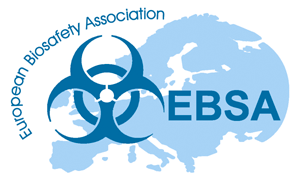About EBSA18 - Course A - Better biological risk assessment using appropriate methodologies and tools
EBSA18 - Course A - Better biological risk assessment using appropriate methodologies and tools
Instructors:
Ursula Jenal, Jenal & Partners Biosafety Consulting, Switzerland
Toon De Kesel, Bayer CropScience, Belgium
Heather Sheeley, Public Health England, UK
Short description
Management of risks related to activities with hazardous biological material, be it research, development, production or diagnostics, requires risk assessment at various stages of the activity. To begin with, the hazards of the various biological materials used need to be estimated. Techniques of genetic engineering allow for significant reconstruction of organisms involving synthetic DNA and RNA, viral vectors, plasmids and inserts from all sorts of different organisms. Effects of such rearrangements need to be evaluated taken into account potential knowledge gaps related to the characteristics of these parts. In an additional step, biosafety and biosecurity measures need to be evaluated for their ability to contain the biological material in relation to its hazard potential. These measures on their own, whether organizational or technical, have their weaknesses and might be vulnerable to failures. Assessing the risk of such failures is essential with respect to incident and accident prevention. For this purpose, the application of the appropriate type of methodology of risk assessment such as Fishbone, HAZOP, SWIFT, Kinney, Fault-tree, Bow tie, Brenner … is crucial. These methods are applicable for all types of activities with biological material, pathogenic and/or genetically modified.
With this course, participants will not only understand the fundamentals and purpose of risk assessment, the terms used in relation to risk evaluation and the basic methods of risk assessment, but also be in a position to judge to what extent a risk assessment needs to be done, what type of methodology is appropriate and how findings resulting from the risk assessment are to be used.
The workshop is suitable for all interested and involved in thorough biological risk assessment, foremost BSOs facing new challenges regarding genetic modification, biocontainment facilities or complex work processes for situations in both research and manufacturing. The course does not, however, expand on environmental risk assessment regarding deliberate release of organisms into the environment.
The workshop topics will be covered by both introductory presentations, intermittent discussions and case studies. Participants are asked to actively participate in the workshop by bringing their own risk assessment questions and work situation up for discussion. Group work would be highly facilitated by participants bringing their own laptops.
Major topics:
- fundamentals of risk analysis,
- risk assessment in genetic engineering,
- risk assessment in complex work situations,
- purpose and terms used in risk evaluation,
- advanced methods and applications of risk management
The course draws on the CWA16335:2008 specifically on section 4.3.1. on risk planning for hazard identification, risk assessment and risk control and some parts of section 4.3.3.1 on biorisk control objectives and targets.
